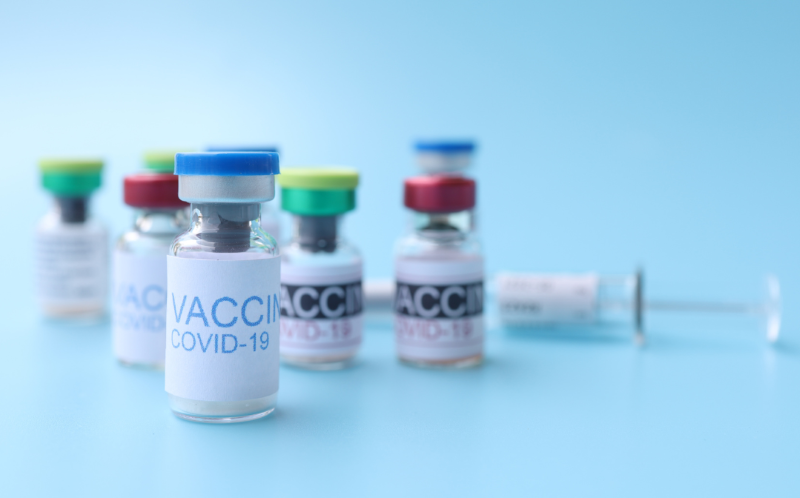Covid vaccine frontrunners in the UK Pfizer and its partner BioNTech are from the US and manufactured in Germany. It uses completely new technology in vaccine production by using ‘messenger’ RNA (the body’s manual to print proteins) to enter a cell and trick it into making antibodies = proteins against covid. It requires a set of 2 jabs requiring a 3 – 4 week gap between doses. In order to keep this piece of genetic code – the mRNA ‘alive’, the vaccine needs to be stored frozen at ultra low temperatures (around minus 70 Celsius). Once thawed in the GP practice/Hospital clinic, the vaccine must be used within 5 days from delivery, and stored in the usual vaccine fridges. Anyone under 50 years old is unlikely to be able to get this vaccine as the UK Government have only procured enough for 2 vaccines in the over 50’s.
Oxford AstraZeneca is the ‘home grown’ vaccine which is more traditional in its vaccine manufacture. It is based on a virus that causes the common cold in chimpanzees called an adenovirus. This virus has been weakened, and modified to contain covid fragments. The virus enters cells in the usual manner but does not cause a cold, and the immune system sees the covid fragments and produces antibodies against it. This vaccine is easier to deploy logistically as it can be stored in the usual vaccine fridges in GP practices which are kept at temperatures of 2-8 degrees Celsius. This requires only 1 vaccination.
There are also several other covid vaccines in development e.g. Moderna / Novavax / Valneva / Sinovac / Janssen / Sanofi Pasteur GSK which are all in earlier stages of clinical trials around the world. The UK government have secured millions of doses from several of these brands.
The vaccines are expected to come in multi-dose vials, the actual number of doses per vial is yet to be confirmed, but it is thought to be in the region of 1000 doses per vial (but possibly up to 5000) and may require dilution.
It was announced last week that a new GP contract or DES (Directed Enhanced Service) will start in December 2020 that states GP practices will administer the covid vaccine to care home residents and staff, as well as to housebound patients during home visits. After receiving the vaccination, they will need to be kept under clinical supervision for 15 minutes which is another logistical problem for the NHS.
It is not known which vaccine the UK will get first although the GP’s DES is based on Pfizer/BioNTech’s 2 dose course. It is likely the UK military will be involved in distributing these new vaccines – due to the logistics of transporting ultra low temperature vaccines as well as protecting these very expensive vials containing potentially thousands of doses each.
As all these vaccines are new, some are calling them experimental, and there is no long-term safety data available on them so we have no idea what side effects (if any) will occur 6 months to 1 year after dosing.
We are also still unsure how long the protection will last following a covid vaccination course, and whether there will be the need for annual covid vaccinations like the ‘flu vaccine whose genetic makeup alters every year.
Questions for the reader
- Would you get the covid vaccine?
- Which type of vaccine would you like to receive?
- If you have an underlying health condition that puts you more at risk from covid, would you want to be first or last in line for the vaccine?
- If you have had covid, would you still get the vaccine?



One Response
I would definately get the vacine not sure which one